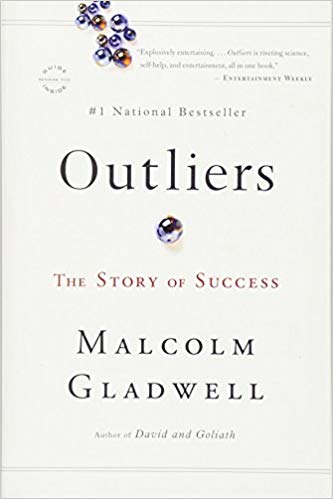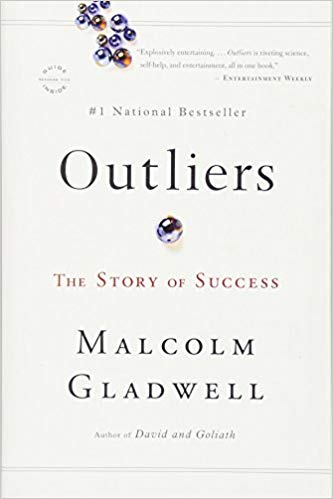Outliers


I’ve had several very interesting conversations lately. I had a great conversation with Allen, Shane, Danielle, and Oli after GDevCon2. I had another fascinating conversation with Fab and few others after the CLA Summit. Most recently I had a conversation after Social Media Day Denver.
All these conversations had something in common. They all challenged the way I see the world. A lot of the discussion revolved around similar topics: namely nature versus nurture and personal responsibility versus societal responsibility. All you have to do is watch the news and you’ll quickly see that not everyone agrees on these topics. I was very lucky in that I was surrounded by some great people and we were able to discuss these issues without resorting to the normal petty political bickering. All of these conversations reminded me of a book I read a few years ago.
It was several years ago that I read Outliers by Malcolm Gladwell, but I still remember the book very clearly because it challenged my view of the world. If you haven’t read any Malcolm Gladwell books, you should. They all challenge the way we commonly view the world.
I read this book several years ago but here are a few excerpts that stuck with me.
Why it matters what month you are born in

Outliers starts out with a story about Malcolm attending a Championship Junior Hockey game in Canada. He’s looking through the program and notices that they list all the player’s birthdates. 40% are born between January and March, 30% between April and June, 20% between July and September, and only 10% between October and December.
Ideally, the birthdays should be spread out fairly evenly. On investigation, it happens that January first is the cutoff for hockey teams in elementary and high school. This means if you are born in January you are a full year older (and bigger and stronger) than your teammate who was born in December. In elementary school that can make a big difference. That advantage compounds over the years, since players who excel get invited to participate in all-star teams and get extra practice. This is true in many sports. In a weird way, what month you are born in could affect your athletic performance.
Have you put in your 10000 hours?

Outliers is notable because it coined the idea of the 10,000 hour rule. It basically states that to become a worldclass expert in anything requires a minimum of 10,000 hours training, regardless of “natural talent” If that is true (there is a bunch of scientific evidence that supports it), it leads to some interesting thoughts.
Being a world class expert then requires a combination of nature and nurture. No one would spend 10,000 hours doing anything unless they had a natural inclination and had made a conscious choice to do so and yet nature must also play a part. 10,000 hours is a lot of time. If you worked 40 hours a week for 50 weeks, it would take you 5 years to reach 10,000 hours. In order to devote that much time to something requires an environment in which you have a lot of freetime. If you are working 2 jobs just to make ends meet, becoming an expert at anything is going to be difficult.
Was Bill Gates just in the right place at the right time?

Bill Gates is well known for being a very successful business owner and very talented at using computers. How did he get to be so talented at computers? Was it natural talent? Or was he in the right place at the right time? Outliers makes a case for the latter.
Apparently Bill went to a private school. That school was just lucky enough to have access to a supercomputer. By the time Bill graduated high school, he was well on his way to his 10,000 hours and well ahead of his peers who were graduating from other schools. Obviously Bill chose to spend his time on the computer instead of doing something else, like playing sports. However,he was lucky enough to be in an environment where that was an option.
What does this have to do with LabVIEW?
I took 2 important things away from this book: 1. Having an understanding that people are shaped by their environment can make us more empathetic towards our colleagues and customers. It can also help us to build better environments in our workplaces. 2. As engineers, we are problem solvers. We are all familiar with the phrase, “thinking outside the box”. I think anything that challenges the way we view the world can help us come up with new and innovative solutions that are “outside the box”. Both of these takeaways can help us write better software.